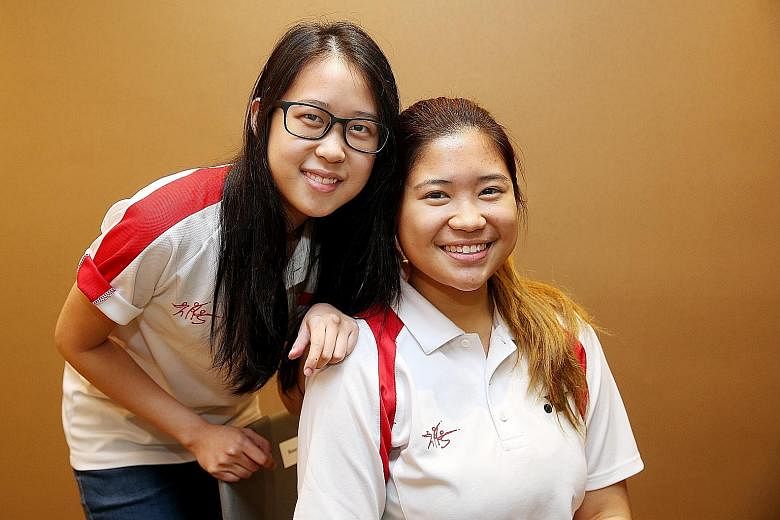When national shooters like Martina Veloso, Tessa Neo and Jasmine Ser compete in local events, they will come armed with an extra accessory; a heart rate monitor to aid their quest for a medal at the 2020 Olympic Games.
The device will monitor their heart rate variability (HRV), which is measured as the time interval between heartbeats, to find the correct range for optimal performance.
This forms part of a four-year study, starting this month, after the Singapore Shooting Association (SSA) and SIM University (UniSIM) signed a memorandum of understanding yesterday.
Said 17-year-old Martina, who was the first female Singaporean to win a Shooting World Cup leg in Munich in 2014: "Hopefully with all the results collected, we will know more about how we can improve during training or how to improvise our training plans so we can perform better at competitions."
More than 20 national shooters will be involved in the research to examine the impact of psychological and physiological factors on each athlete's performance.
Said UniSIM psychology lecturer Emily Ortega, who will supervise the study by students at the university: "The majority of my PhD study was on sports psychology and shooting and I found that you tend to shoot better if your heart rate variability is higher, and that it was the only significant factor of shooting performance."
Each shooter's HRV during training sessions and local competitions will be measured and individual profiles created.
Ortega said: "Shooting is a sport where you really need to focus for 11/2 to two hours and at the same time learn how to control your emotions because the moment you react after making a shot, it could throw you off balance."
Such feedback will be invaluable ahead of the SEA Games in Kuala Lumpur, noted Neo, 19, a double gold medallist at the 2015 edition and one of the athletes aiming to be selected for the Aug 19-31 biennial multi-sport event.
SSA president Michael Vaz believes the study will help improve the national shooters' mental strengths.
Explaining that shooters perform differently at home and during competitions, he added: "If we can identify (the reasons for) the difference between shooting under stress and shooting at home, we can replicate the situation in training to help our shooters."


